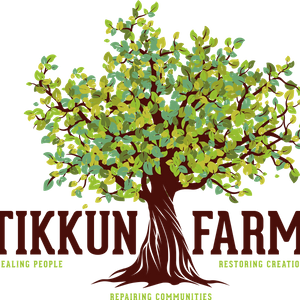From Grief to Growth
We believe the world is out to gift us, not get us.
Monie’s sisters brought him to Tikkun Farm. Two of them were campers at our summer camp, and one volunteered as a counselor. Together they talked Monie into joining our counselor staff, where he became a favorite among the boys. Monie was gentle, funny, patient and kind. He loved his sisters, and they adored him. When they brought home the crockpot meal ingredients they’d prepared at camp, Monie helped them cook it. When his sisters told me about how much they loved their brother, they talked about how safe they felt with him around.
After High School graduation Monie struggled. He knew college was not the path for him, but with no transportation, it was hard to find a job. For a while Monie lived at home, but eventually that stopped working. He took a job at McDonalds in the next town over, working the night shift so he’d have a place to go at night, until he found a place to live. While trying to sort out these big life issues, he showed up at Tikkun Farm, wondering if he could sleep on our couch. We welcomed him in. Eager to support his job efforts, we made sure Monie had work clothes and bus money. We stocked the fridge with foods he liked. He knew he was welcome, and we loved him. Soon, though, he connected with co-workers who introduced him to ways to make more money. Slowly Monie drifted away from the farm and quit his job at McDonalds. We had not seen him for a few months then one of his friends from the neighborhood called me in the middle of the night. She wondered if I’d take her to Covington where Monie had moved. He’d just been shot.
We drove down together, knowing before we arrived, that Monie had died at the scene. He was 19 years old.
To those of us who knew Monie, he was a beautiful person, a brother, a son, a friend, and gentle soul. To the economists, Monie was a statistic.
The U.S. Census Bureau’s Community Survey indicates jobless rates for Black men at more than 45 percent. In urban, industrial cities, like Mt. Healthy, more young black men were either jobless or imprisoned than employed. This unemployment story has far reaching impacts. Research indicates a high correlation between the rates of unemployment and violence of all kinds, including domestic violence and child abuse. High rates of incarceration and violence contribute to a high number of Adverse Childhood Experiences (ACEs) for children living in our neighborhood. According to the ACEs study, the effects of childhood adversity continue well into adulthood, negatively impacting men and women impacting their long term health, making them more vulnerable to cancer, diabetes and heart disease. ACEs also distort their beliefs about themselves and others, leading to harmful behaviors, relationship challenges and emotional difficulties. Adults’ ACEs impede an individual’s capacity to learn and hold jobs. Tikkun Farm experienced the tragedy of these statistics first hand through our relationship with Monie.
I know we did all we could to support Monie. I also know Monie’s story might have ended differently if he’d received vocational support after high school that would have prepared him for skilled work. We couldn’t offer that kind of support then. But we can now.
Tikkun Farm offers a trauma-informed job readiness program for post-high school youth in Mt. Healthy, that they can walk to. In this 10-week program, youth will learn skills and gain experience with aquaponics growing systems, outdoor agriculture, removal of invasive species, native species planting, culinary arts, and more. Added to their work experience will be a weekly focus on trauma-informed care, teaching them self-regulation skills through yoga and mindfulness, creative expression, and one-on-one, as well as group mentoring and coaching. Youth will be paid a stipend of $10/hour. Establishments looking for employees with urban gardening skills or culinary arts are partnering with us to provide jobs for our graduates.










